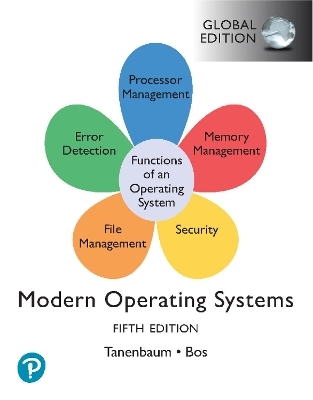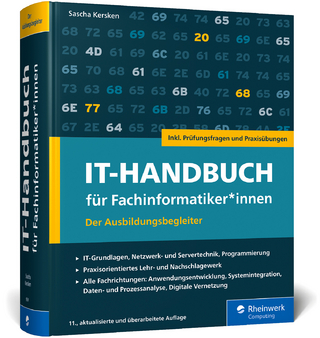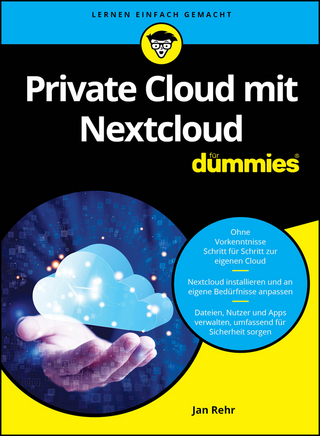
Modern Operating Systems, Global Edition
Pearson Education Limited (Verlag)
978-1-292-45966-0 (ISBN)
The 5th Edition keeps pace with modern OS with a new chapter on Windows 11, new security coverage, an emphasis on flash-based solid-state drives and more.
About our authors Andrew S. Tanenbaum has an S.B. degree from M.I.T. and a Ph.D. from the University of California at Berkeley. He is currently a Professor Emeritus of Computer Science at the Vrije Universiteit in Amsterdam, The Netherlands. He was formerly Dean of the Advanced School for Computing and Imaging, an interuniversity graduate school doing research on advanced parallel, distributed, and imaging systems. He was also an Academy Professor of the Royal Netherlands Academy of Arts and Sciences, which has saved him from turning into a bureaucrat. He also won a prestigious European Research Council Advanced Grant. In the past, he has done research on compilers, operating systems, networking, local-area distributed systems and distributed systems. This research has led to over 200 refereed publications in journals and conferences. Prof. Tanenbaum has also authored or co-authored 5 books, which have been translated into over 20 languages, ranging from Basque to Thai. They are used at universities all over the world. There are 163 versions of his books. Prof. Tanenbaum has also produced a considerable volume of software, notably MINIX, a small UNIX clone. It was the direct inspiration for Linux and the platform on which Linux was initially developed. The current version of MINIX, called MINIX 3, is now focused on being an extremely reliable and secure operating system. Prof. Tanenbaum will consider his work done when no user has any idea what an operating system crash is. MINIX 3 is an ongoing open-source project to which you are invited to contribute. Go to www.minix3.org to download a free copy of MINIX 3 and give it a try. Both x86 and ARM versions are available. Prof. Tanenbaum's Ph.D. students have gone on to greater glory after graduating. Some have become professors; others have fulfilled leading roles in government organizations and industry. He is very proud of them. In this respect he resembles a mother hen. Prof. Tanenbaum is a Fellow of the ACM, a Fellow of the IEEE, and a member of the Royal Netherlands Academy of Arts and Sciences. He has also won numerous scientific prizes from ACM, IEEE, and USENIX. If you are unbearably curious about them, see his page on Wikipedia. He also has two honorary doctorates. Herbert Bos obtained his Master's degree from Twente University and his Ph.D. from Cambridge University in the United Kingdom. Since then, he has worked extensively on dependable and efficient I/O architectures for operating systems like Linux, but also research systems based on MINIX 3. He is currently a professor at the VUSec Systems Security and Research Group in the department of Computer Science at the Vrije Universiteit in Amsterdam, The Netherlands. His main research field is systems security. With his group, he discovered and analyzed many vulnerabilities in both hardware and software. From buggy memory chips to vulnerable CPUs, and from flaws in operating systems to novel exploitation techniques, the research has led to fixes in most major operating systems, most popular browsers, and all modern Intel processors. He believes that offensive research is valuable because the main reason for today's security problems is that systems have become so complex that we no longer understand them. By investigating how we can make systems behave in unintended ways, we learn more about their (real) nature. Armed with this knowledge, developers can then improve their designs in the future. Indeed, while sophisticated new attacks tend to feature prominently in the media, Herbert spends most of his time on developing defensive techniques to improve the security. His (former) students are all awesome and much cleverer than he is. With them, he has won 5 Pwnie Awards at the Black Hat conference in Las Vegas. Moreover, 5 of his students have won the ACM SIGOPS EuroSys Roger Needham Award for best European Ph.D. thesis in systems, 2 of them have won the ACM SIGSAC Doctoral Dissertation Award for best Ph.D. thesis in security, and 2 more won the William C. Carter Ph.D. Dissertation Award for their work on dependability. Herbert worries about climate change and loves the Beatles.
Introduction
Processes and Threads
Memory Management
File Systems
Input/Ouput
Deadlocks
Virtualization and the Cloud
Multiple Processor Systems
Security
Case Study 1: Unix, Linux, and Android
Case Study 2: Windows 11
Operating System Design
Reading List and Bibliography
| Erscheinungsdatum | 13.03.2023 |
|---|---|
| Verlagsort | Harlow |
| Sprache | englisch |
| Maße | 180 x 230 mm |
| Gewicht | 1722 g |
| Themenwelt | Mathematik / Informatik ► Informatik ► Betriebssysteme / Server |
| ISBN-10 | 1-292-45966-2 / 1292459662 |
| ISBN-13 | 978-1-292-45966-0 / 9781292459660 |
| Zustand | Neuware |
| Informationen gemäß Produktsicherheitsverordnung (GPSR) | |
| Haben Sie eine Frage zum Produkt? |
aus dem Bereich


